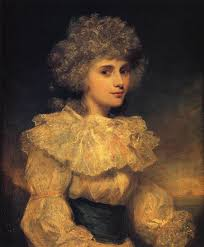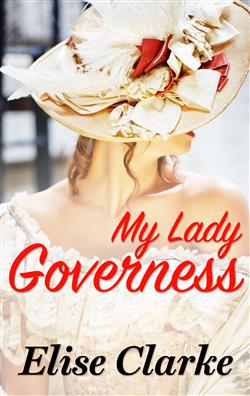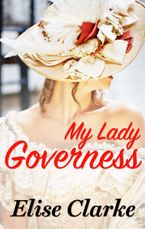by Elise Clarke
Elise Clarke, author of the upcoming delightful Regency read My Lady Governess that you NEED IN YOUR LIFE, looks at the top ten governesses, both real and imagined!
- Jane Eyre

Who doesn’t love Jane Eyre? Sent away as an unloved orphan, Jane famously advertises to become governess to the turbulent Mr Rochester, and shows she is more than his match. “Do you think, because I am poor, obscure, plain and little, I am soulless and heartless? You think wrong!” - Charlotte Bronte (and Emily and Anne)

All three Bronte sisters were sent to be governesses. All three of them hated it; one pupil threw a Bible at the pocket-sized Charlotte, who is thought to have used this humiliation in Jane Eyre. - Becky Sharp, the protagonist of Vanity Fair
A ruthless social climber who uses governessing to work her way up from nothing, Becky might not be sympathetic but she has a formidable brain.
- Marie Curie

She worked as a governess to raise funds for her education. She was the first woman to win a Nobel Prize, the first person to win twice, and the only person to win in two different sciences for her pioneering work in radioactivity. - Maria von Trapp
The would-be nun who became governess to Captain von Trapp’s children, then married him, formed a singing troupe and escaped from Nazi Austria. Her story was immortalised in The Sound of Music.
- Selina Trimmer and Lady Elizabeth Foster

They did not get on. Both governesses for the Duke and Georgiana, Duchess of Devonshire, although since Elizabeth was also the Duke’s mistress and later his wife, it was very awkward. (pic of Lady Elizabeth only, none of Miss Trimmer) - Anna Leonowens
In 1862, Leonowens, an educationalist, became governess to the King of Siam’s 82 children, a position she held for 6 years. She earned great respect and remained in correspondence with the next king for many years. Her experience was immortalised in the film The King and I. - Agnes Grey

Anne Bronte’s governess heroine. Anne was a governess for five years, and her portrayal of the position is dark, although after many tribulations Agnes finds her happy ending with Mr Weston. - Madame de Maintenon

She went to Versailles as governess of Louis XIV’s illeitimate daughter, where she spoke to Louis XIV as an equal, which he came to like, and grew to have great influence over him. In 1683, at 48, she married Louis in a secret ceremony; he referred to her simply as ‘Madame’. - Mary Wollstonecraft

Founding feminist who wrote Vindication of the Rights of Women. As a governess, she was said by one pupil to have ‘freed my mind from all superstitions’. Her daughter Mary Shelley wrote Frankenstein.
 One knight, one runaway heiress, one rollicking romance: A breath of fresh air in Regency romance!
One knight, one runaway heiress, one rollicking romance: A breath of fresh air in Regency romance!
Proud and haughty, Lord de Waare is almost as medieval as his castle…until he accidentally abducts a governess, who turns out not to be a governess at all, and who shows this knight that his heart is not as armoured as he thought.
A girl with a dangerous past, Marina would happily disappear again, but since de Waare won’t let that happen, then the least he can do is help her clear her name. But moving back into society is dangerous for her and for the stern man she’s coming to love. She knows the rules of honour and society, and she won’t allow de Waare to compromise the principles that define him.
But de Waare didn’t become the Crusader by accepting defeat. Faint heart never won a fair lady, and de Waares always win.
My Lady Governess is available for pre-order now!
iBooks, Booktopia, Google, Kobo, Nook, Amazon AU, Amazon UK, Amazon US



 Brothers of the Vine
Brothers of the Vine Forever Evermore
Forever Evermore Women of W.A.R.
Women of W.A.R.




